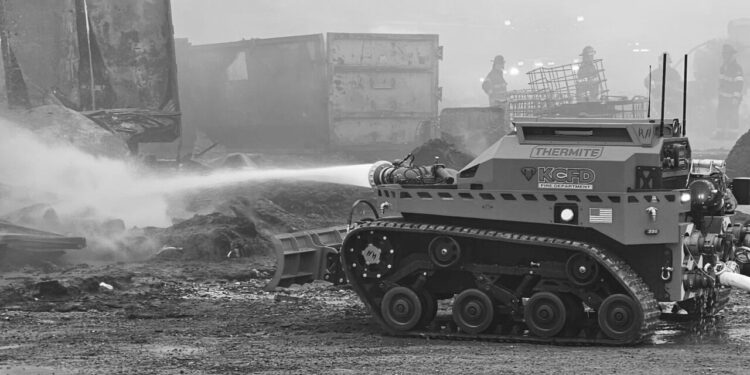Kansas City’s fire department now operates a robot capable of delivering 2,500 gallons of water per minute—more than a standard engine—while maneuvering through wreckage and heat that would otherwise risk human injury. That same robot, officials note, helped wrap up a major fire 12 hours faster than traditional methods, freeing up crews for other emergencies.
Other cities are using robots in similarly narrow but high-impact roles. In Irvine, California, five ADA-assessment robots are mapping sidewalks and transit stops with centimeter-level precision, completing in six months what would’ve taken staff four years. Englewood, Colorado is launching a concierge robot in a co-working library space. Sanford, North Carolina has quietly replaced noisy, hazardous riding mowers with ten autonomous lawn-cutting units. And on Detroit’s Belle Isle, sand-cleaning and water-filtering bots are picking up debris and tracking patterns to inform waste mitigation.
The common thread is practicality. These robots aren’t flashy demonstrations of AI potential; they’re tools targeted at labor-intensive tasks—often in places where safety, consistency, or manpower is an issue. In that context, cities are finding that robotic deployments can free up staff, reduce noise, and even improve outcomes. In Kansas City, fewer firefighters standing in calf-deep water also meant less neighborhood smoke.
Still, this isn’t a robotics revolution. As experts in the article note, robots don’t yet make most operations cheaper—and cities have little interest in tech for tech’s sake. But for some roles, especially those marked by physical strain or routine hazard, the economics may be starting to shift.









